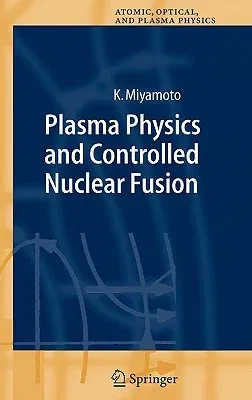Kenro Miyamoto
(Author)Plasma Physics and Controlled Nuclear Fusion (2005)Hardcover - 2005, 9 June 2005

Qty
1
Turbo
Ships in 2 - 3 days
In Stock
Free Delivery
Cash on Delivery
15 Days
Free Returns
Secure Checkout

Part of Series
Springer Atomic, Optical, and Plasma Physics
Part of Series
Springer Series on Atomic, Optical, and Plasma Physics
Print Length
372 pages
Language
English
Publisher
Springer
Date Published
9 Jun 2005
ISBN-10
3540242171
ISBN-13
9783540242178
Description
Product Details
Author:
Book Edition:
2005
Book Format:
Hardcover
Country of Origin:
DE
Date Published:
9 June 2005
Dimensions:
23.8 x
16.87 x
2.54 cm
ISBN-10:
3540242171
ISBN-13:
9783540242178
Language:
English
Location:
Berlin, Heidelberg
Pages:
372
Publisher:
Series:
Weight:
671.32 gm